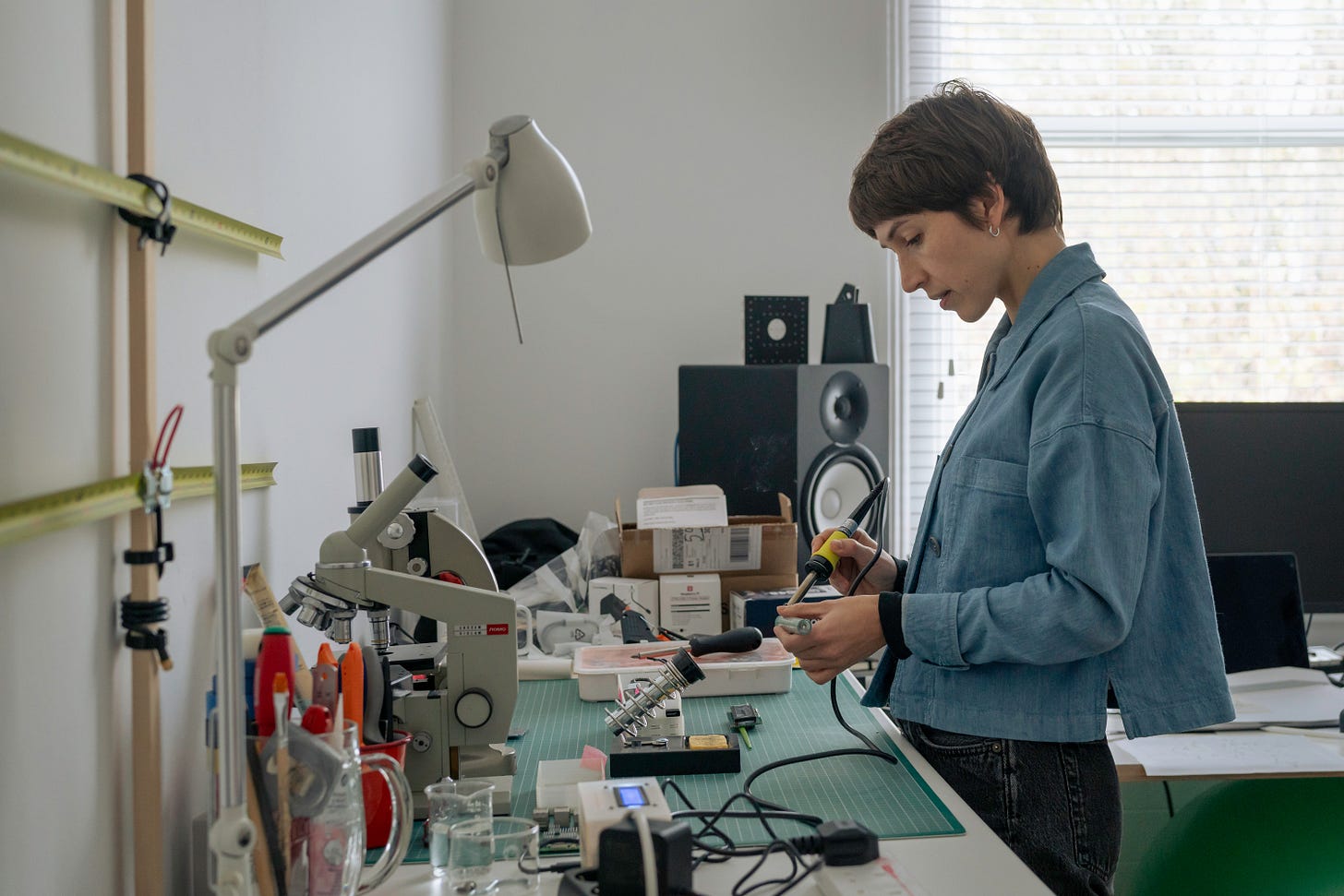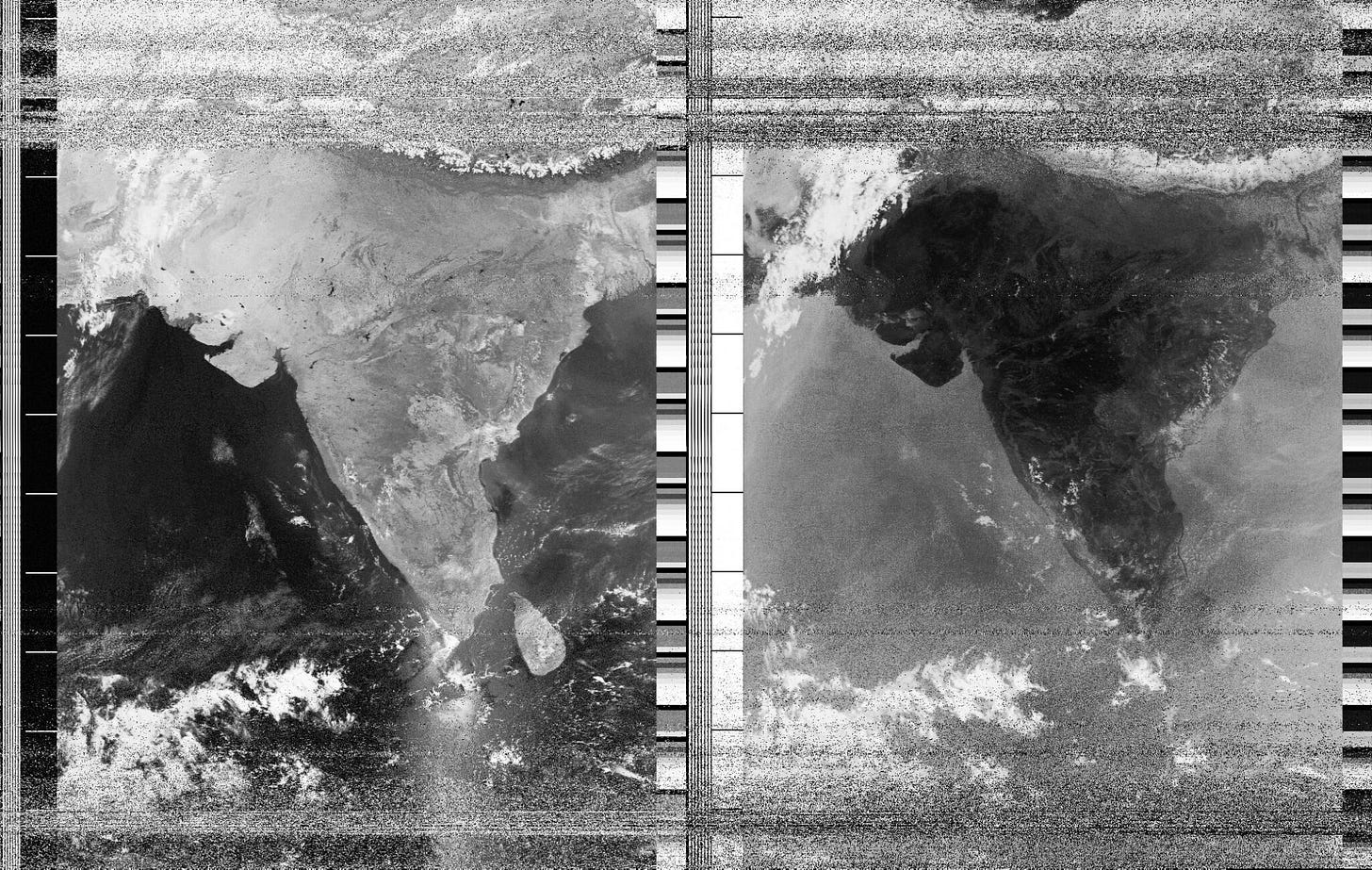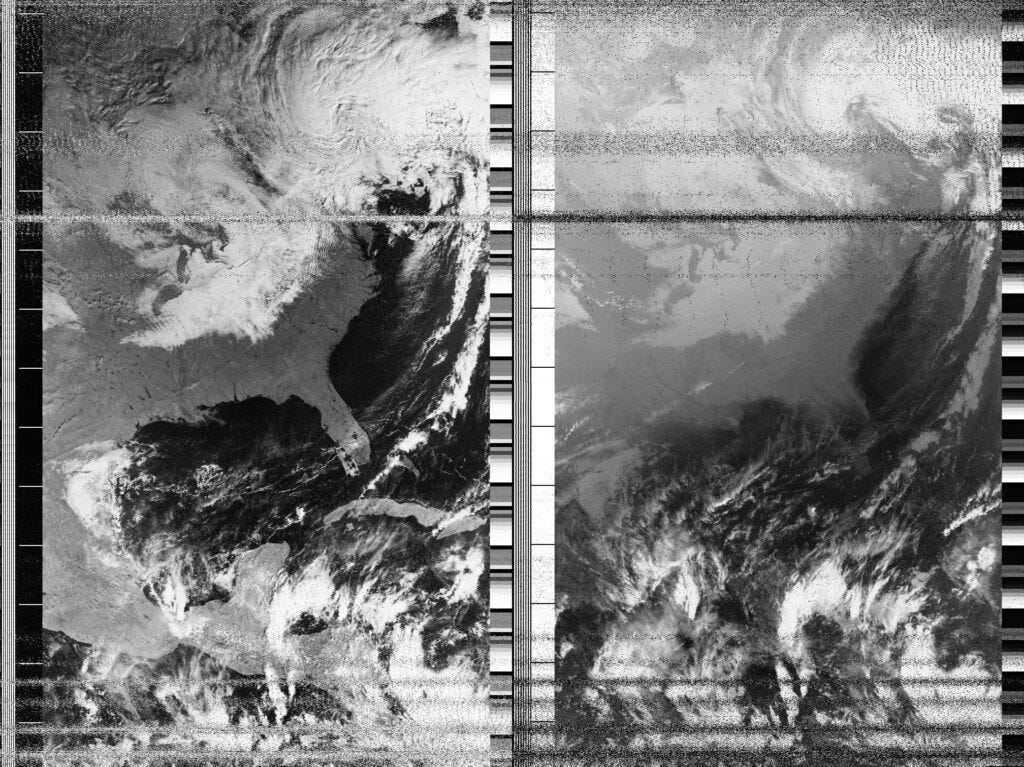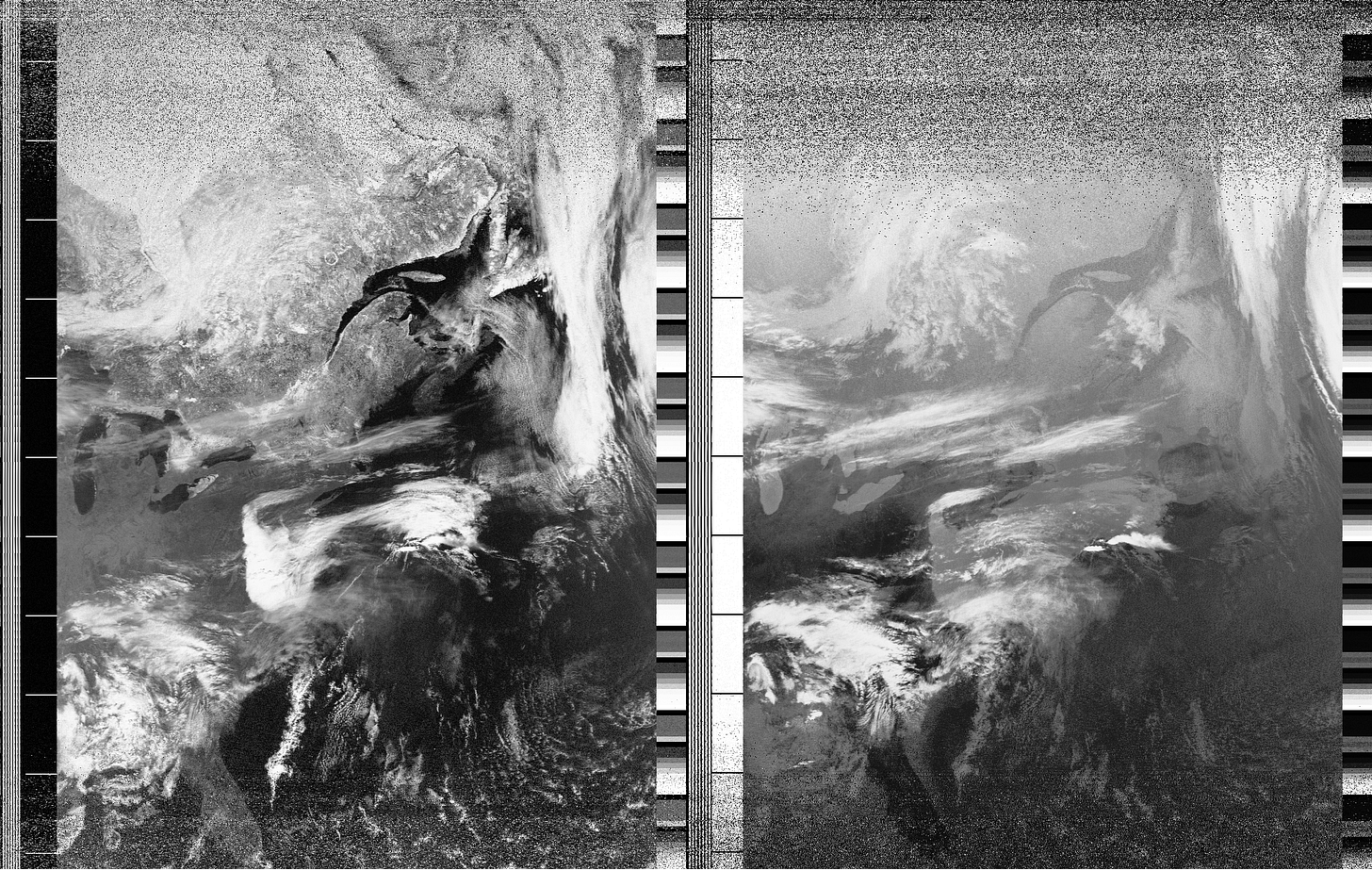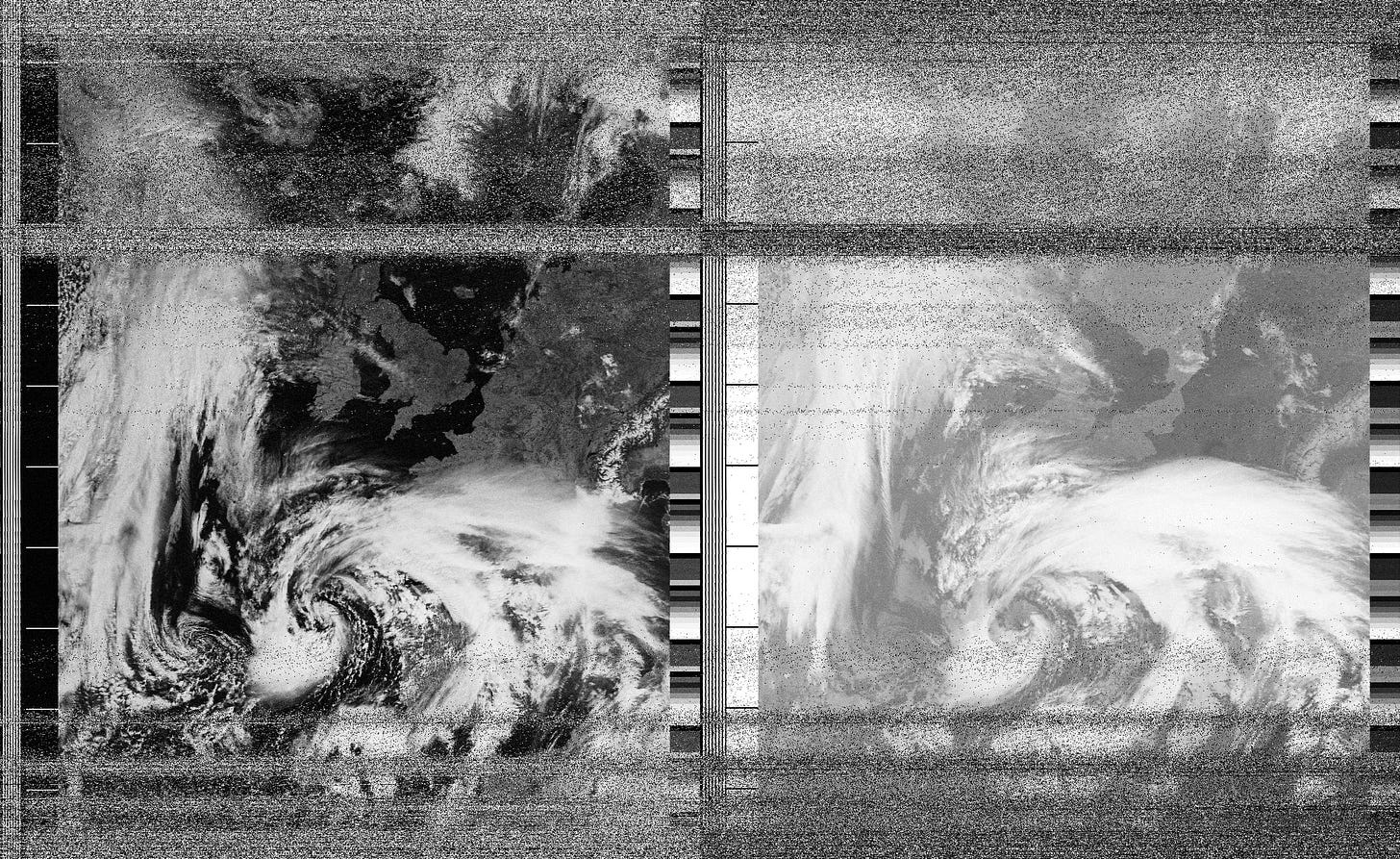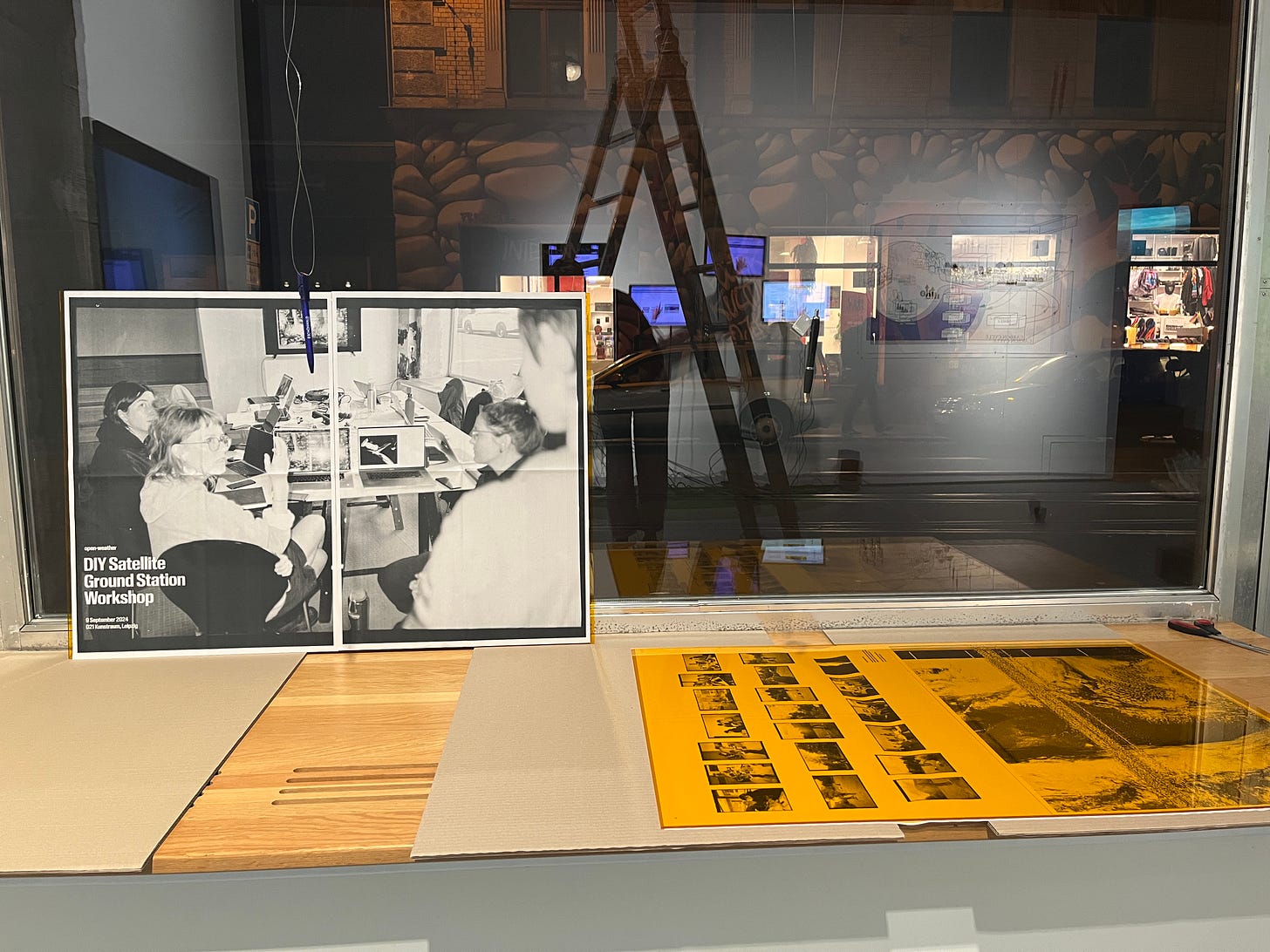Introducing Open-weather Automatic Ground Stations
An open-source Raspberry Pi satellite receiver
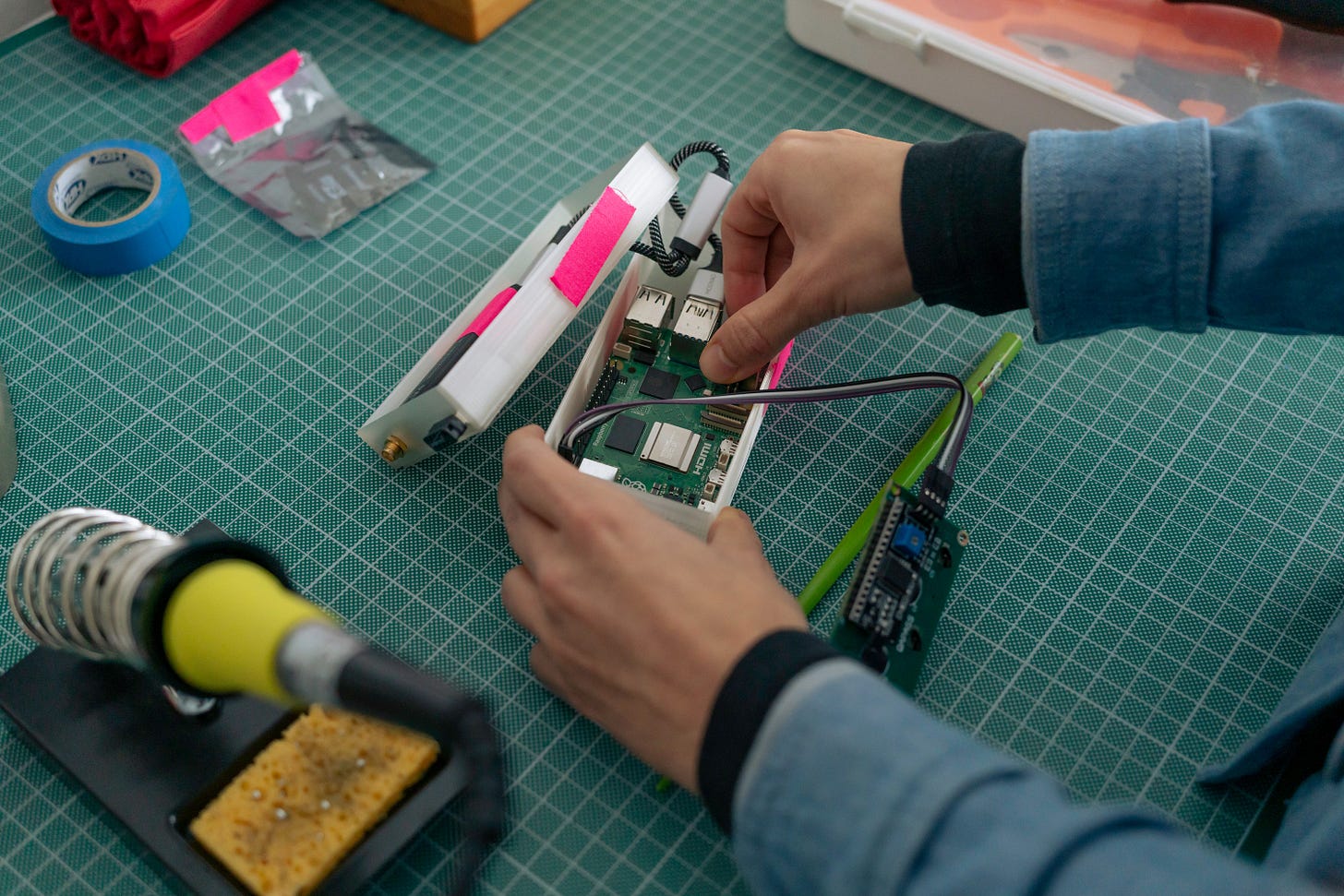
Dearest friends and weather co-conspirators,
We write in the wake of reports on the lowest ever-recorded Arctic Sea ice extent in the month of January 2025, and documentation of record level Ocean Heat Content in 2024.
As we write, the Polar Jet Stream billows, sending gases, particles and shifts in political temperature from North America to swaths of Africa and Europe. We extend our solidarity to Palestinians who continue to endure the heaviest of weather – and encourage you to donate, if you are able.
Building on our last newsletter announcing open-weather’s relaunched satellite imagery decoder, Public Archive and Contributor Form, our second newsletter turns to the open-weather Automatic Ground Station project: an effort to prototype, build, and test automatically receiving satellite ground stations, and to deploy them at over ten locations around the world, from New York to Phnom Penh. As always, key to this work is not only the building of technical infrastructure, but crucially, democratising access to knowledge and satellite imagery on earth’s changing weather patterns as the planet warms above 1.5 degrees Celsius.
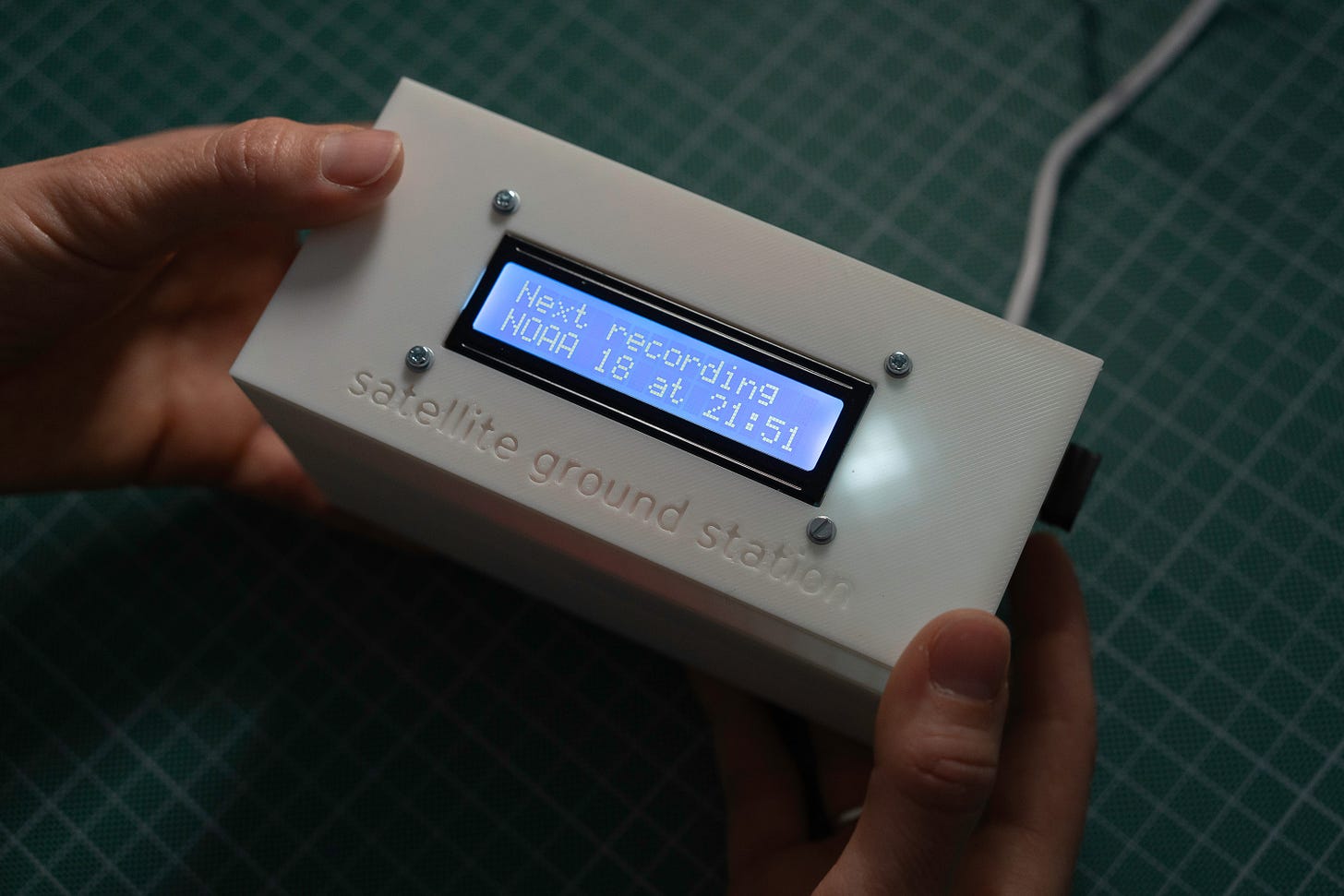
What is an open-weather Automatic Ground Station?
The open-weather Automatic Ground Station (AGS) is an open-source radio receiver of Automatic Picture Transmissions from weather satellites NOAA-15, NOAA-18, and NOAA-19.
We developed the AGS because manual satellite image capture can be time intensive. While still foundational to open-weather, manual reception is not always practical or possible. The design and production of the AGS adds open-source hardware to our existing public resources for DIY satellite imagery reception and decoding.
The AGS project is a collaboration with artist Grayson Earle who developed the software and designed the hardware. Its API was developed by Rectangle.
The Story of the Automatic Ground Station
The open-weather AGS project began in early 2024 as a proposal to the Open Science Hardware Foundation, which seed-funded the project together with Alfred P. Sloane Foundation. We supplemented this funding with an Arts and Humanities Research Council grant held by Sasha at Royal Holloway University of London.
AGS were prototyped by Grayson in Summer 2024. The first three AGS devices were tested by Soph and Sasha, and Soph set up the first fully-functional AGS system on their balcony in Vienna to monitor AGS reception for the month of August. Meanwhile, the Geography department at Royal Holloway University 3D-printed several iterations of the AGS casing. Rectangle developed an API to receive AGS contributions in the open-weather Public Archive. The first prototype AGS was mailed to high school teacher (and Sasha’s Dad) Steve Engelmann in Los Angeles in August 2024.
From September 2024, due to Sasha’s access to university 3D printers and other infrastructure, the team decided to move the hub of AGS assembly, testing, and shipping from Berlin to London. Sasha has assembled and tested eleven (and counting!) AGS and shipped them to hosts around the world between September 2024 and March 2025.
Grayson continues to provide software support, with over seven important updates pushed to the AGS network since September 2024. The team has collectively answered key questions including how the AGS calculates NOAA satellite passes over its location in local time, and how to overcome common Raspberry-Pi errors.
Automatic Ground Station Images
What kinds of images can an AGS receive?
Capturing satellite images with static, permanently mounted radio antennas has proved challenging. Our previous emphasis on manual, DIY antennas left us needing to skill-up on permanent antenna installation, and to identify new materials including low-loss Radio Frequency cables. Extra appreciation here to Sasha, who from her makeshift workstation in London, solved numerous technical and logistical challenges.
Our need to run radio reception, tuning, and signal processing on a Raspberry Pi left us with fewer options for software compared to those available for laptop computers. It took months of digging into online tutorials and testing of raw satellite images received by AGS to identify code for filtering Automatic Picture Transmissions into relatively ‘long’ and ‘clear’ images (though we still love noise)!
Here are some of the results so far:
Automatic Ground Station Hosts
As of March 2025, six AGS have been successfully launched in Florida, United States; Pune, India; Vienna, Austria; Gilboa, United States; Cornwall, England and Arbroath, Scotland. These AGS are uploading satellite images to the open-weather Public Archive daily.
We are currently working with AGS hosts in Phnom Penh, Cambodia; Valparaiso, Chile; Seattle, United States; and Nicosia, Cyprus. AGS are soon to be set up in Perth, Australia; and Barcelona, Spain.
Steve Engelmann’s plans to install an AGS in Pacific Palisades (a suburb of Los Angeles) in early January were unfortunately halted by the disastrous Los Angeles fires. We are actively looking for an alternative location for the Los Angeles AGS- please let us know if you have any ideas.
While we are working with images from an automatic NOAA weather station run by Jacques Gentil in Quatres Bornes, Mauritius (thank you Jacques!) we are still exploring contacts with AGS hosts on the African continent. Please reach out if you know of any people or institutions who might be interested.
Heartfelt thank you to all of the current AGS hosts for their ongoing hard work and participation. And special thanks to Grayson for so many months of collaboration!
Stay tuned for our next newsletter, which will feature open-weather’s unfolding, year-long project: the Year of Weather.
Warm wishes on 137 MHz,
Open-weather
🥚 We leave you with an Easter egg: behind the scenes shots of our contribution to the recent group show, Teleconnections, curated by Sybille Neumeyer at D21 Kunstraum in Leipzig, Germany. Thanks to Soph who improvised when materials weren't delivered and took the photographs for our artwork over multiple trips to Leipzig!
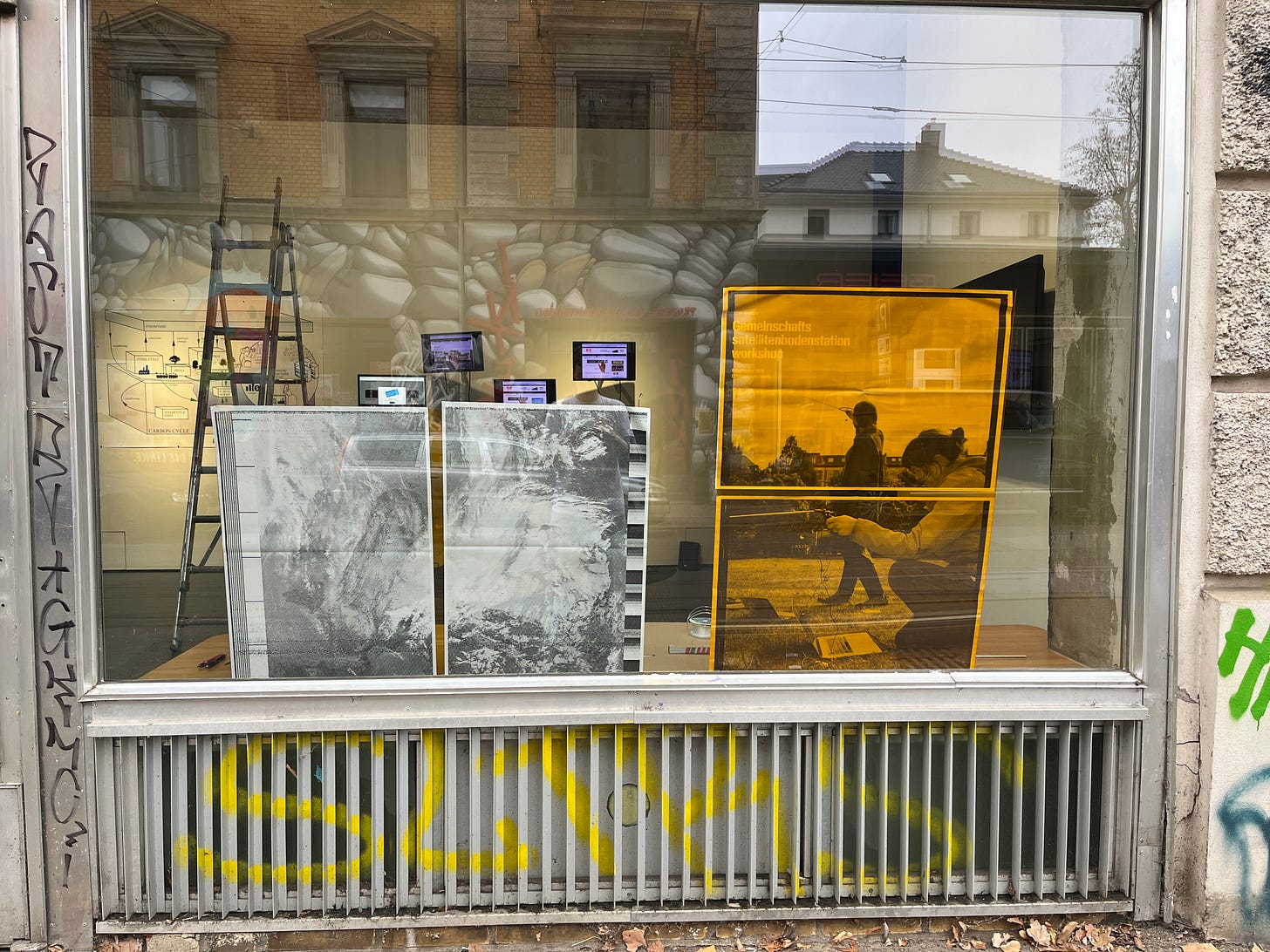
For more information about upcoming workshops, talks, and how to take part, see the latest activities on our website.

